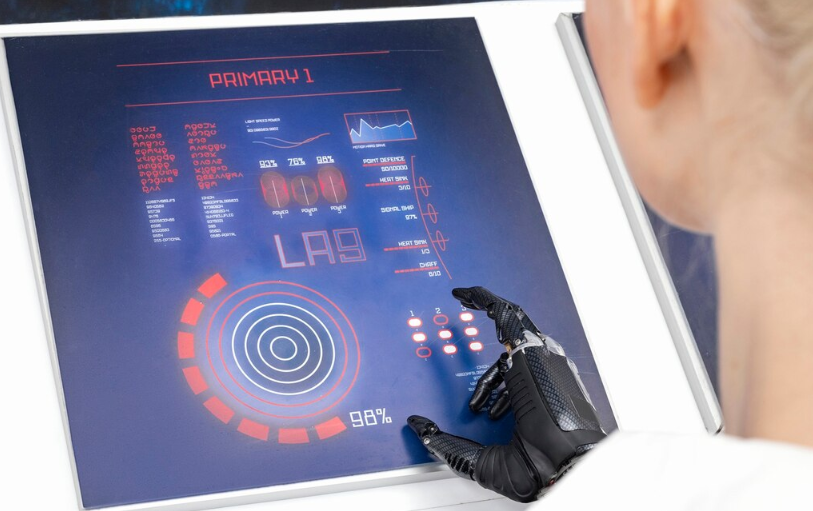The video game industry is undergoing a revolution—driven not by graphics or hardware, but by artificial intelligence (AI). From smarter enemies and more realistic characters to AI-generated worlds and player-tailored experiences, AI is reshaping every aspect of how games are made and played. Once used mainly for basic enemy behavior, AI now fuels some of the most dynamic and immersive gaming experiences ever seen.
In this article, we’ll explore how AI is transforming the video game industry, from development tools to in-game storytelling—and what it means for the future of gaming.
🎮 Smarter NPCs: From Predictable to Intelligent
Non-playable characters (NPCs) have long been a staple of video games. Traditionally, their behavior followed simple, pre-defined scripts. Now, thanks to AI:
- NPCs can learn and adapt to player behavior.
- Enemies can plan ambushes, use cover, or retreat intelligently.
- Friendly characters can act as believable teammates instead of robotic followers.
Games like Middle-earth: Shadow of Mordor introduced the Nemesis System, where enemies remembered players, held grudges, and evolved over time—creating a personalized story with emergent gameplay. That’s AI in action.
🛠️ Game Development: AI as a Creative Partner
AI is also changing how games are made. Developers use machine learning and procedural generation to automate and accelerate the creative process.
Procedural Content Generation (PCG)
AI can generate massive open worlds, quests, and levels on the fly, reducing development time and costs. This allows for:
- Infinite environments (No Man’s Sky is a famous example).
- Unique playthroughs for every player.
- Dynamic content that reacts to in-game decisions.
AI-Assisted Design
AI tools like Promethean AI and Scenario help developers create assets, environments, and character designs faster than ever before. Artists can describe what they want in natural language, and AI generates a visual base to work from—boosting productivity while preserving creativity.
🧠 Personalized Gameplay Experiences
Modern AI systems can analyze how a player plays and then tailor the experience accordingly.
- Adaptive difficulty levels adjust challenges based on player skill.
- Storylines can change dynamically in response to player choices and behaviors.
- Virtual game masters in some role-playing games can narrate and evolve the game world in real time, based on input.
These AI-driven experiences make games feel more personal, responsive, and emotionally engaging.
🗣️ Voice and Dialogue Systems
AI-powered natural language processing (NLP) is revolutionizing in-game communication.
- AI-driven dialogue systems let players have open-ended conversations with NPCs.
- Some games are experimenting with voice synthesis that changes NPC responses based on your tone or emotional cues.
- Tools like OpenAI’s Codex and ChatGPT are being explored to build smarter dialogue engines for future games.
Imagine playing an RPG where the shopkeeper remembers your past conversations or where a villain tries to manipulate you with convincing psychological tactics. That’s the future AI is enabling.
🎨 AI in Visuals and Animation
AI is also improving the way characters and worlds look and move:
- Motion capture refinement: AI smooths animations and fills in missing frames.
- Facial animations: Real-time, AI-generated facial expressions match voice acting more precisely.
- Style transfer: AI can apply art styles to games, making it easier to build unique visual identities.
Games like The Last of Us Part II and Red Dead Redemption 2 used advanced AI techniques to create lifelike animations that enhance immersion.
📈 Data-Driven Game Testing and Analytics
AI enables automated game testing, reducing the time needed to identify bugs and balance issues.
- Bots simulate thousands of gameplay hours, finding edge cases human testers might miss.
- AI can analyze player data to improve level design, difficulty curves, and monetization strategies.
This helps developers refine games even before players get their hands on them—and continue improving them after release.
🚀 The Future: Fully AI-Generated Games?
Looking ahead, the ultimate goal is a game that creates itself—AI-generated worlds, stories, and characters that evolve continuously and uniquely for each player. While we’re not fully there yet, prototypes and research projects hint at that future:
- Games that write their own lore.
- Characters that “live” even when you’re not playing.
- Entire ecosystems that grow and shift naturally, with no manual scripting.
This will usher in a new era of infinite replayability and hyper-personalized adventures.
⚖️ Challenges and Ethical Considerations
As with any powerful technology, there are challenges:
- AI bias: Algorithms can unintentionally reinforce stereotypes if trained on flawed data.
- Job displacement: Automation could reduce the need for some creative roles in the industry.
- Data privacy: Personalized AI requires analyzing player behavior—raising questions about how that data is stored and used.
Balancing innovation with responsibility will be key to ensuring AI enhances gaming without compromising values or player trust.
🎯 Conclusion: A New Era of Gaming
AI is not just a tool—it’s a creative force reshaping how games are made, played, and experienced. From smarter characters and adaptive worlds to real-time story generation and automated development, AI is pushing the boundaries of what’s possible in gaming.
As these technologies evolve, so too will the relationship between developers, players, and the digital worlds they explore. The future of gaming isn’t just more realistic or more immersive—it’s more intelligent.


